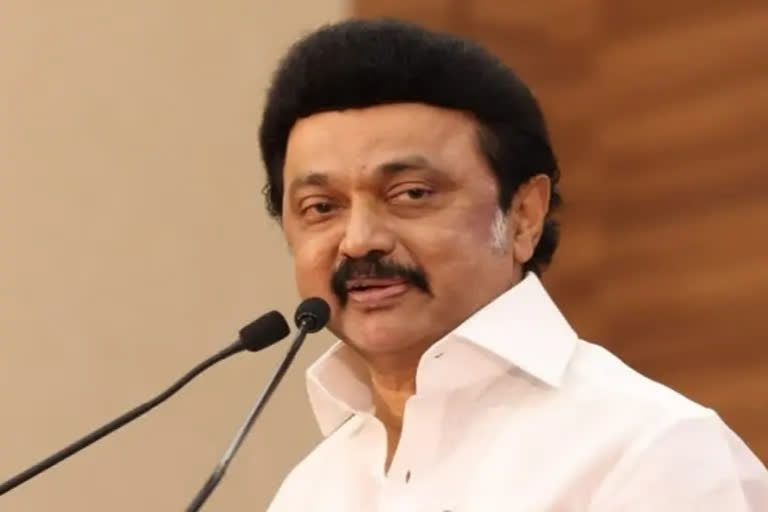Chennai: The Supreme Court judgement upholding 10 per cent reservation to people belonging to economically weaker sections (EWS) in upper caste in admissions and government jobs is a setback to the century-long social justice struggle, Tamil Nadu Chief Minister M K Stalin said on Monday.
Political parties and like-minded organisations should come together to protect social justice, said Stalin, who is the president of the ruling DMK, while reacting to the apex court judgement upholding the validity of the 103rd Constitution amendment providing 10 per cent reservation to the EWS. The court said the law on quota for EWS does not violate the Constitution.
Recalling the Dravida Munnetra Kazhagam's legal struggle against the reservation system brought in by the Central government, Stalin said, "Today's judgement should be considered as a setback in the century-long struggle for social justice." However, after an analysis of the judgment, legal experts would be consulted and a decision on the next step would be taken to continue the struggle, he said.
"From Tamil Nadu, which made the first Constitutional amendment to protect social justice, I request like-minded organisations to unite to make the voice of social justice resound across the country," he said. "The Supreme Court verdict is not for the poor in all castes. This is meant for the poor among the upper caste. In that case, how can this be construed as a judgment based on economic criteria," asks Viduthalai Chiruthaigal Katchi (VCK) chief Thol Thirumavalavan. He said two judges have argued that caste-based economic criteria for reservation negate equality.
"The judgement is against the principles of social justice. This is gross injustice," Thirumavalavan claimed and said his party would appeal against the verdict. The Supreme Court had, by a majority view of 3:2, upheld the validity of the 103rd Constitution amendment providing the 10 per cent reservation.
The verdict was disappointing, said former Union Minister and Pattali Makkal Katchi (PMK) president Dr Anbumani Ramadoss. He, too, said this would cause a setback to the principles of social justice
"India is a country with social inequalities. To rid them, reservation should be given on the basis of social status and economic status should not be allowed as a criteria for social justice instead of social status," he said. Economic status of the people varied from year to year and reservation based on economic backwardness is only a poverty alleviation measure and not social justice for equality, he argued and said steps, legally and politically, would be taken to tide over this issue, as the reserved category would be affected by this judgement.
"We will definitely support such an initiative," Ramadoss added. The State unit of the Communist Party of India said the judgement was unacceptable, as no country in the world offered reservations on economic backwardness alone because economy is not permanent. "Therefore, the opinion of the judges is not acceptable. Reservation policy should be re-examined," said State secretary of CPI R Mutharasan.
MDMK chief Vaiko, an ally of the ruling DMK, claimed that implementing a quota on economic criteria is against the principles of social justice and sought a review of the verdict. (PTI)
(This story has not been edited by ETV Bharat and is auto-generated from a syndicated feed.)



